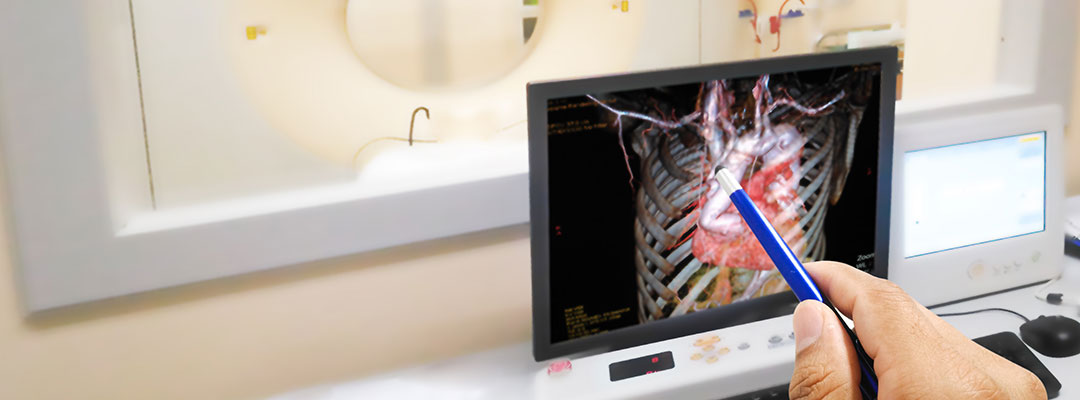Cardiac CT : Coronary Angiography (CTCA) and Calcium Scoring
What is an Cardiac CT?
CT stands for Computed Tomography, and is also known as a “CAT” scan. It uses X-Rays to produce images of the heart. CT Coronary Angiography (CTCA) is a test to evaluate the coronary arteries. These arteries are on the surface of the heart and supply the heart muscle with oxygen and other essential nutrients. The main advantage of CTCA is that it is non-invasive, meaning no surgical procedure is required. In order to obtain accurate information you need to have a slow heart rate, which may require medication such as beta blockers. A CT Calcium Score tells us if you have calcified plaque deposits in your coronary arteries.
What do I need to do to prepare for my test?
12 hours prior to your test
- No Caffeine (including tea, coffee, energy drinks, chocolate)
- No exercise
- Remember to take any extra medication as recommended.
3 hours prior to your test
- No solid food
- Drink plenty of water
- Please refrain from smoking
How long does the test take?
Is there a Medicare Rebate?
Yes, there is a Medicare rebate for CTCA with an appropriate specialist referral. Unfortunately for CT Calcium Scores there is no Medicare rebate currently available.
What happens?
Upon arrival, your blood pressure and heart rate will be recorded to determine if you need any additional medication to slow your heart rate. Small adhesive dots will be placed on your back where thin leads will be connected to a monitor. This allows us to observe your heart rhythm. A small needle will then be placed into a vein in your arm. This is used for injection of a contrast agent (dye), which will ensure the arteries stand out on the scan. You will lie down on a narrow table that passes through the CT scanner. You will be instructed when to hold your breath during the scan, usually no longer than 10 seconds at a time. It is normal to experience a warm feeling when the dye is injected. The computer then generates up to one thousand pictures of your heart for analysis.
When will I know the results?
Your report will be sent directly to your referring doctor, usually within 24 hours. You do not need to wait for the report or any films, videos or CD’s. Please ensure you make a follow up appointment with your specialist to discuss the results.

